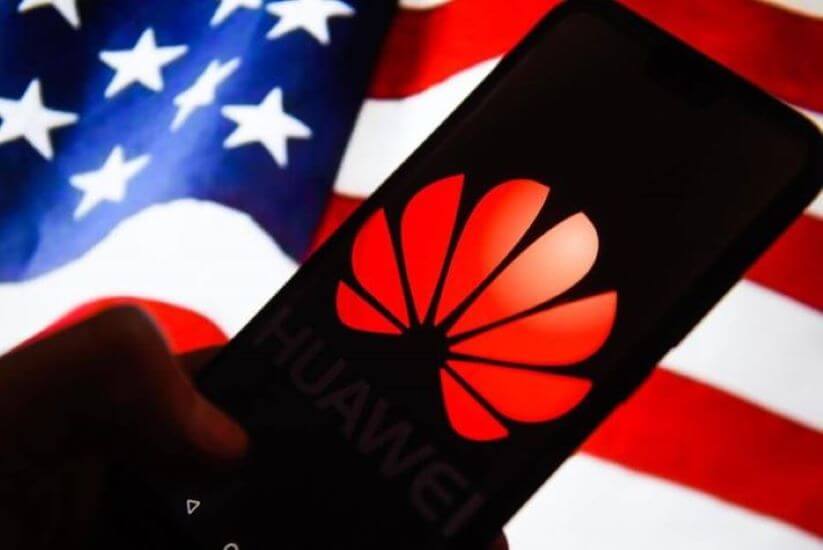Sanctions against Huawei impact US chipmakers, and others, in what is a full on technology war
The Financial Times reports that as the Trump administration and the US Department of Commerce took steps to effectively ban Huawei from selling technology into the American market. American chipmakers took an almost immediate financial hit. Read the full story at FT.
Analyst Take: The Trump administration sanctions against Huawei and full on ban precludes suppliers like Qualcomm and Broadcom from selling semiconductors to the Chinese. Also note that the US government will now require the Chinese government to seek permission to buy technology components from American companies and American companies must seek licenses approving the sale of components before any transaction can happen.
As a result of the ban, Qualcomm’s shares saw a 4 percent drop in price in today’s trading, down to $83.08 by Noon on the east coast and Broadcom’s share price fell 2.5 percent.
These sanctions against Huawei and the ban that’s been established have broad impact, and that impact isn’t limited to chipmakers like Huawei and Broadcom. W e can expect global supply chains in general to feel this—in a big way. That includes companies like Microsoft, Oracle, Intel, and Micron all of whom do business in and with China.
How big of an impact will the sanctions against Huawei and ban have? Globally, Huawei buys about 3.8 percent of the world’s semiconductors, which amounts to about $15 billion, and that represents between 20 and 30 percent of the company’s material costs. Data from a Gartner and Bernstein analysis in 2017 reported Huawei’s purchases at about 3.5 percent of the world’s semiconductors, behind Samsung at 9.6 percent, Apple at 9.2 percent, Dell at 3.7 percent, and Lenovo at 3.6 percent. Without question those numbers are higher today.
Not only does the Huawei ban have a significant on US based chipmakers and technology companies, it will undoubtedly have a significant impact on Huawei as well.
Huawei is today the world’s largest telecoms equipment manufacturer, with more 5G contracts globally than any other company. While I’m sure the company has had time to prepare as a result of pressure from the US government over the course of the last year, it’s probably a safe bet that it can’t get by completely (yet) without components from vendor partners, many of whom are US technology companies and chipmakers.
Make no mistake: This is a war between China and the United States for technology dominance. The battle for 5G and the battle for dominance as it relates to all things AI is firmly underway. And chipmakers and other technology companies are no doubt going to feel the pain. There’s also pretty much no chance this is going to be resolved quickly. It’s also a given that the US sanctions against Huawei and ban is going to feed China’s desire to win.
The original version of this article was first published on Futurum Research.
Photo Credit: Forbes
Related articles from our analyst team
MIT Gives Huawei the Boot (from Futurum Tech News brief, week of 4/12/2019
Qualcomm Earnings Need a Deeper Look, Here’s Why
Why We Should be Watching China’s Tech Boom
Shelly Kramer is a Principal Analyst and Founding Partner at Futurum Research. A serial entrepreneur with a technology centric focus, she has worked alongside some of the world’s largest brands to embrace disruption and spur innovation, understand and address the realities of the connected customer, and help navigate the process of digital transformation. She brings 20 years' experience as a brand strategist to her work at Futurum, and has deep experience helping global companies with marketing challenges, GTM strategies, messaging development, and driving strategy and digital transformation for B2B brands across multiple verticals. Shelly's coverage areas include Collaboration/CX/SaaS, platforms, ESG, and Cybersecurity, as well as topics and trends related to the Future of Work, the transformation of the workplace and how people and technology are driving that transformation. A transplanted New Yorker, she has learned to love life in the Midwest, and has firsthand experience that some of the most innovative minds and most successful companies in the world also happen to live in “flyover country.”


